College of Science, Engineering & Technology
Renewable energy from Unisa project will save school many thousands of rands
With 1 600 cooked meals served to learners twice every day, Elethuthemba Combined School in Johannesburg South spends a staggering R70 000 a year on liquid petroleum gas (LPG) just for cooking. From 2020, that money will no longer go up in smoke. Instead, it will be spent on desperately needed learning resources and school maintenance, according to deputy headmaster Mr Muraga Sadiki.
This will be possible when the school, situated near the Jackson informal settlement where most of the 1 600 learners live, starts using biogas produced through a project led by Unisa’s Institute for Development of Energy for African Sustainability (IDEAS) and the Unisa chapter of the student organisation Engineers without Borders.
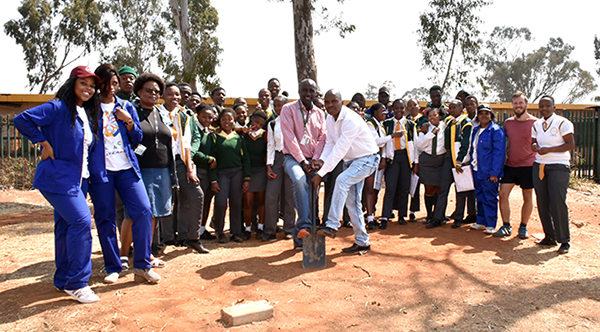
Starting the spadework: This is the spot where the school’s biodigesters will be installed. Holding the spade are Dr Celestin Sampuga (left) of Unisa’s IDEAS and Mr Muraga Sadiki, deputy headmaster. Around them are members of the Unisa chapter of Engineers without Borders (in blue overalls) and some of the school staff and learners who helped with the design, marketing and feasibility studies for the biodigesters.
"We spent a lot of money on LPG and on replacing gas stoves when they are worn out; this project is going to help us a lot," says Sadiki, explaining that Elethuthemba’s gas bills are high because all the learners receive breakfast and lunch daily as part of government’s National School Nutrition Programme.
Once the new biodigester is up and running next year, LPG will be replaced with methane made from cow manure obtained from a nearby farm – either for free or for a fair exchange, says Kamogelo Sehoole, a BSc Hons Chemistry student and member of Engineers without Borders. "For example, we could take the effluent from the digester back to the farm because it makes very good fertilizer."
Ploughing the savings back
The savings from replacing expensive LPG with biogas can then be ploughed back into the school, which is non-fee paying and relies on government for 100% of its funding.
"We will spend the savings on learning resources. For example, we have a shortage of textbooks and no computers except for administration," says Sadiki. "The children need to be exposed to computers as a number of them do not have them at home. We will also use the money saved for maintenance, such as repairing furniture, toilets and so on."
The costs of installing the planned biodigester will be paid for through a donation from the Chinese Embassy, which is providing R300 000 – double the amount that Unisa’s IDEAS and Engineers without Borders requested. This could enable the project team to consider a similar project at another school in need of affordable energy.
Dr Celestin Sempuga of IDEAS says the project is particularly exciting as it is also a learning opportunity for Elethuthemba’s learners, some of whom are part of a Unisa-supported science group that has been helping to design, market and investigate the feasibility of the biodigester.
Hands-on learning opportunity
"We did the calculations, which was difficult at first because we had no idea where to start or what to consider," says Baldwin Tawodzeia, a Grade 11 learner who was part of the design group.
With the support of Unisa students, Baldwin and his co-designers mastered the challenge and worked out that, given the amount of biogas that would be needed, the school would need two biodigesters of 10 cubic metres each.
The task of the feasibility study group was to find a suitable location for the biodigesters, which they decided should be located as close as possible to the kitchen where breakfast and lunch are cooked for the learners.
Finally, the marketing group was tasked with helping to find funding for the biodigester project. They put together a presentation which was so compelling that it convinced the Chinese Embassy to make its R300 000 contribution.
"It was great," says Tiny Buthongwana, a Grade 12 learner and member of the marketing team. "We got to tell them of our current financial expenses at our school and show them the neighbourhood and situation. We emphasised that it (the biodigester) will be a great demonstration site to educate the neighbouring shops and informal settlement."
* Written by Claiwryn van der Merwe
Publish date: 2019/09/17
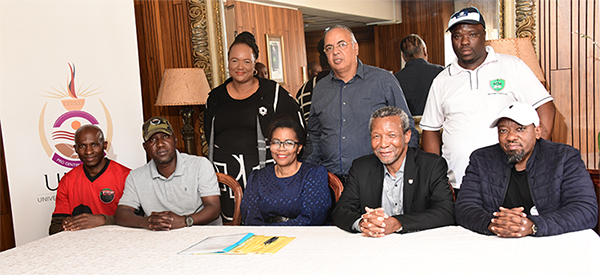
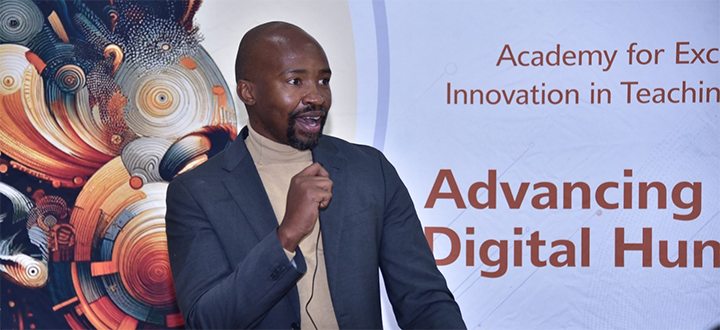 Unisa launches unique digital humanities initiative
Unisa launches unique digital humanities initiative
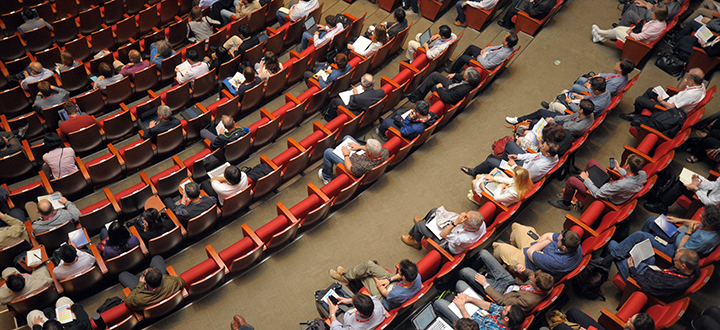 Unisa Catalytic Niche Area Research Symposium seeks to demystify misconceptions about expectations and research in the CNAs
Unisa Catalytic Niche Area Research Symposium seeks to demystify misconceptions about expectations and research in the CNAs
 Unisan's input key to successful National Risk Report
Unisan's input key to successful National Risk Report
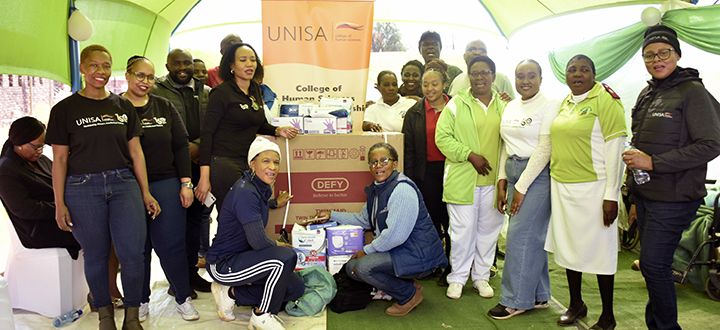 Unisans commemorate Mandela Day with the elderly
Unisans commemorate Mandela Day with the elderly
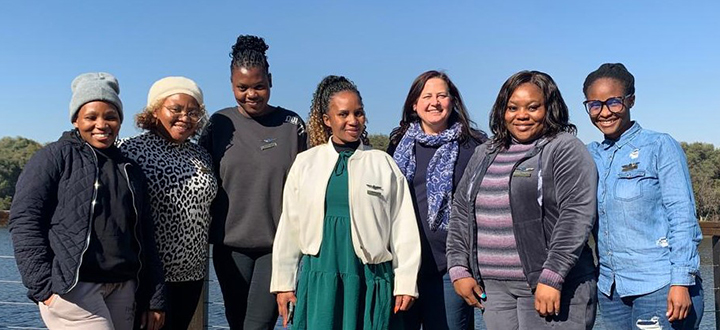 Open opportunities for women in the drone industry as Drone Divas continue on their journey
Open opportunities for women in the drone industry as Drone Divas continue on their journey